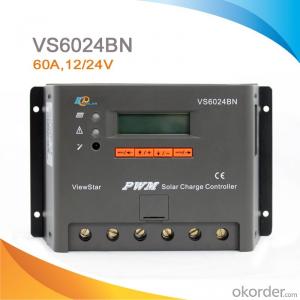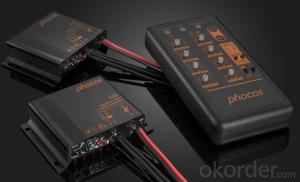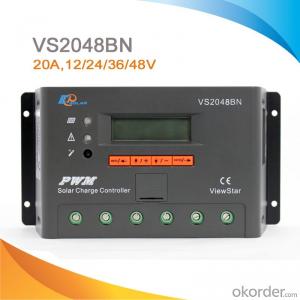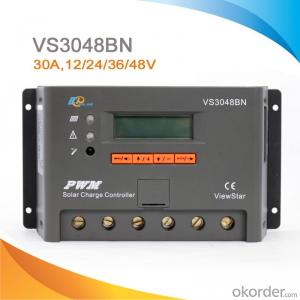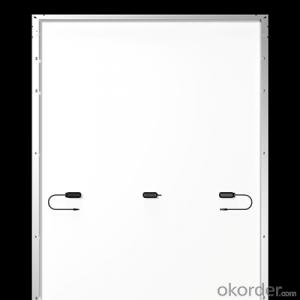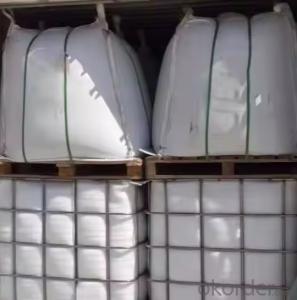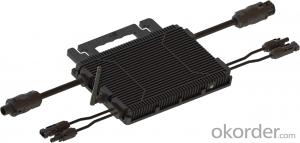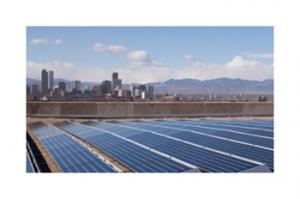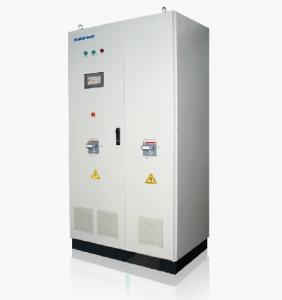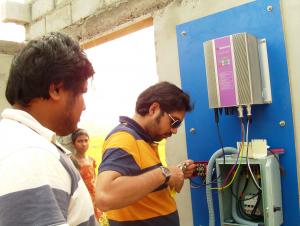LCD/LED High Quality PWM Solar Street Light Charge Controller/Regulator with CE ROHS,60A, 12V/24V,VS6024BN
OKorder Service Pledge
OKorder Financial Service
You Might Also Like
Descriptions:
A solar inverter, or PV inverter, or Solar converter, converts the variable direct current (DC) output of a photovoltaic (PV) solar panel into a utility frequency alternating current (AC) that can be fed into a commercial electrical grid or used by a local, off-grid electrical network. It is a critical BOS–component in a photovoltaic system, allowing the use of ordinary AC-powered equipment. Solar inverters have special functions adapted for use with photovoltaic arrays, including maximum power point tracking and anti-islanding protection.
Features:
·Excellent EMC design
·32 bit MCU with high speed
·High efficient Series PWM charging
·Four battery type options: Sealed, Gel, Flooded, and USER
·Intelligent lighting and timer control for solar lighting system
·12 bit A/D high-precision sampling to ensure accuracy
·Use MOSFET as electronic switch
·Full control parameters setting and modification, diversified load control mode
·Humanized design of browser interface, undertake every operating conveniently
·Temperature compensation
·Adopt graphics dot-matrix LCD screen and HMI (human-machine interface) with 4 buttons,integrated menu displaying and operation
Electronic Protections:
·PV short circuit protection
·PV reverse polarity protection
·Battery overcharge protection
·Battery over discharge protection
·Battery reverse polarity protection
·Load overload protection
·Load short circuit protection
·Overheating protection
Specification:
Model | VS1024BN | VS2024BN | VS3024BN | VS4524BN | VS6024BN |
Nominal system voltage | 12V/24V auto work | ||||
Rated battery current | 10A | 20A | 30A | 45A | 60A |
Rated load current | 10A | 20A | 30A | 45A | 60A |
Max. battery voltage | 32V | ||||
Equalize charging voltage | Sealed: 14.6V, Flooded: 14.8V, User-defined: 9~17V | ||||
Boost charging voltage | Gel: 14.2V, Sealed: 14.6V, Flooded: 14.8V, User-defined: 9~17V | ||||
Float charging voltage | Gel /Sealed /Flooded: 13.8V, User-defined: 9~17V | ||||
Low voltage reconnect voltage | Gel /Sealed /Flooded: 12.6V, User-defined: 9~17V | ||||
Low voltage disconnect voltage | Gel /Sealed /Flooded: 11.1V, User-defined: 9~17V | ||||
Self-consumption | ≤15mA(12V); ≤10mA(24V); ≤9mA(36V); ≤8mA(48V) | ||||
Grounding | Common negative | ||||
Temp. compensation | -3mV/°C/2V | ||||
Relative humidity | 10%~90% Non-condensation | ||||
Communication | RS485 / RJ45 interface | ||||
LCD temperature | -20°C ~ +70°C | ||||
Working temperature | -25°C ~ +55°C | ||||
Humidity | ≤95% N.C. | ||||
Enclosure | IP30 | ||||
Overall dimension | 162x85x40mm | 162x100x50mm | 200x103x58mm | 201x109x59mm | 205x129x67mm |
Terminals | 4mm2 | 10mm2 | 16mm2 | 35mm2 | 35mm2 |
Net weight | 0.2kg | 0.4kg | 0.7kg | 0.9kg | 1.3kg |
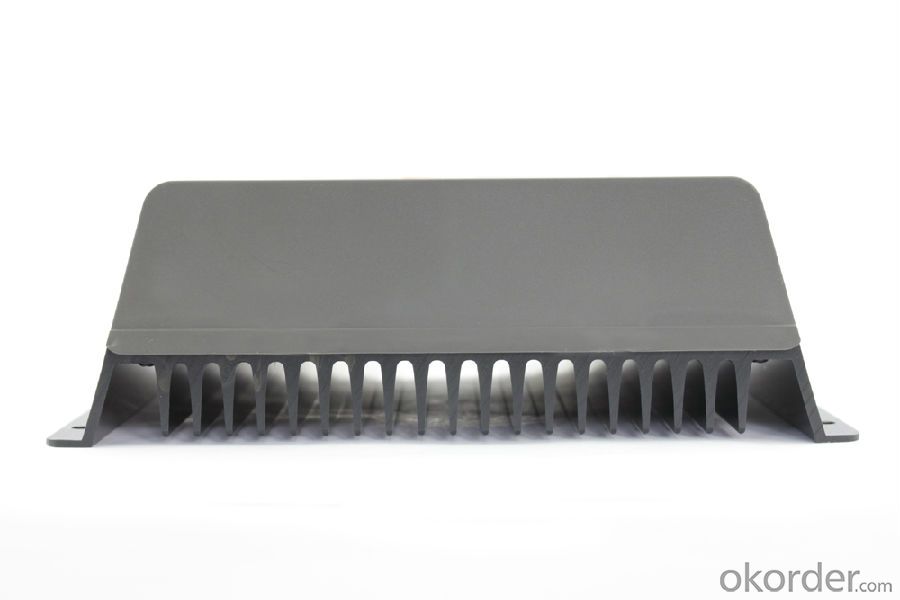
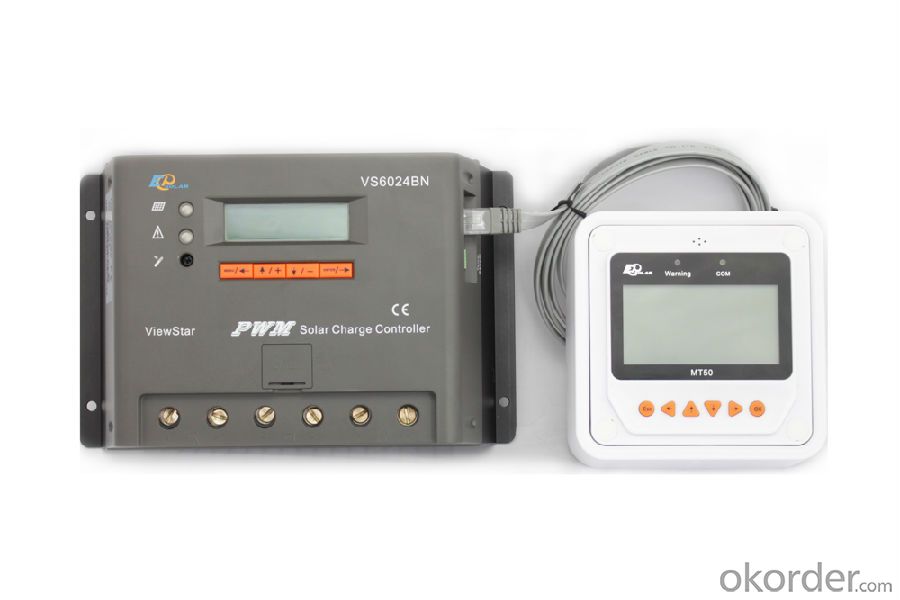
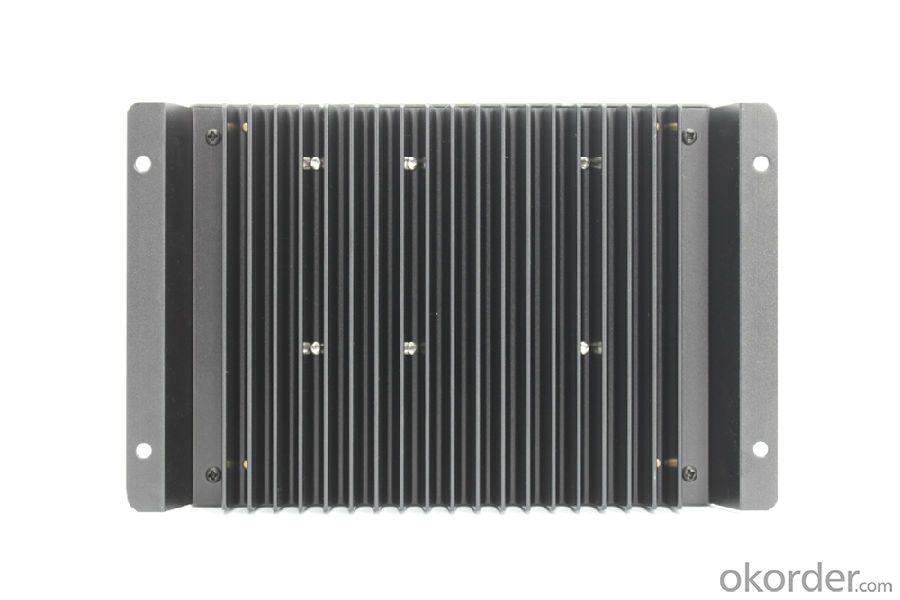
- Q:How does a solar controller handle the protection of loads?
- A solar controller handles the protection of loads by regulating the amount of energy that is being delivered to the loads. It monitors the voltage and current levels of the solar panels and batteries and ensures that the loads receive a steady and appropriate amount of power. It also protects the loads from overcharging, overdischarging, and short circuits by implementing various protective mechanisms such as overvoltage protection, low voltage disconnect, and overload protection.
- Q:How does a solar controller handle voltage fluctuations in the battery?
- The purpose of a solar controller is to regulate and control the charging process, ensuring that voltage fluctuations in the battery are managed effectively. When the solar panels generate electricity, the controller carefully monitors the voltage and current output to verify that it falls within the acceptable range for charging the battery. In cases where the voltage from the solar panels exceeds that of the battery, the controller will adjust the charging current to prevent overcharging and potential harm to the battery. This adjustment is made possible by utilizing a charge regulation algorithm. On the other hand, if the voltage from the solar panels is lower than that of the battery, the controller will increase the charging current to compensate for the reduced input voltage. This adjustment guarantees that the battery receives adequate charging power to reach its optimal voltage level. Furthermore, a solar controller may incorporate a built-in voltage regulator to ensure a stable and consistent output voltage for the battery. This regulator effectively smoothens any fluctuations in the voltage output of the solar panels, resulting in a more reliable and consistent charging current for the battery. In conclusion, the solar controller plays a crucial role in managing voltage fluctuations in the battery. It accomplishes this by regulating the charging process, preventing overcharging or undercharging, and ensuring that the battery receives the appropriate voltage and current for efficient and safe charging.
- Q:Can a solar controller be used in a solar-powered interplanetary travel system?
- Yes, a solar controller can be used in a solar-powered interplanetary travel system. A solar controller is responsible for regulating and optimizing the charging and discharging of batteries within a solar power system. In an interplanetary travel system, solar panels would be used to harness the energy of the sun, and a solar controller would be essential to manage the power flow, ensure efficient energy storage, and protect the batteries from overcharging or discharging.
- Q:Can a solar controller handle power fluctuations from the charge controller?
- Yes, a solar controller is designed to handle power fluctuations from the charge controller. It acts as a regulator to stabilize and control the flow of power coming from the charge controller, ensuring a consistent and reliable energy supply to the connected devices or battery.
- Q:What is the role of a solar controller in preventing battery over-voltage?
- The solar controller plays a crucial role in preventing battery over-voltage by regulating the charging process when the battery is being charged by a solar panel. Solar panels harness the sun's energy to generate electricity, and this energy can vary due to factors like sunlight intensity and temperature. Acting as a mediator between the solar panel and the battery, the solar controller ensures the battery is charged in a safe and efficient manner. One of its main tasks is to monitor the battery's voltage level. If the voltage exceeds a specific threshold that could potentially harm the battery, the solar controller takes appropriate action to prevent over-voltage. To prevent battery over-voltage, the solar controller utilizes techniques like pulse width modulation (PWM) or maximum power point tracking (MPPT). These techniques regulate the current flowing from the solar panel to the battery, ensuring the battery is charged at an optimal rate without surpassing its safe voltage limit. When the battery voltage nears the maximum safe level, the solar controller either reduces the charging current or temporarily interrupts the charging process. By controlling the charging rate, the solar controller prevents the battery from becoming excessively charged, which could result in problems such as electrolyte loss, shortened battery lifespan, or even battery failure. Additionally, solar controllers often offer additional protective features like temperature compensation. This feature adjusts the charging voltage based on the battery's temperature, ensuring the battery is charged optimally, taking into account the impact of temperature on its performance. In conclusion, the solar controller's role in preventing battery over-voltage involves monitoring the battery's voltage and regulating the charging process to prevent overcharging. By doing so, it helps maintain the battery's longevity and ensures its safe and efficient operation in solar power systems.
- Q:Can a solar controller be used in a solar-powered gate opener system?
- Yes, a solar controller can be used in a solar-powered gate opener system. A solar controller is responsible for regulating the flow of power from the solar panels to the gate opener, ensuring that the batteries are charged properly and preventing overcharging or damage. By using a solar controller, the gate opener system can efficiently harness and utilize solar energy for powering the gate.
- Q:What are the main components of a solar controller?
- The main components of a solar controller typically include a charge controller, which regulates the flow of electricity between the solar panel and the battery, ensuring the battery is not overcharged or damaged. Additionally, a solar controller may also have a load controller, which manages the flow of electricity from the battery to the connected load, such as lights or appliances. Some advanced solar controllers may also include features like LCD screens, voltage regulators, temperature sensors, and communication ports.
- Q:How does a solar controller handle the protection against battery reverse polarity?
- A solar controller handles protection against battery reverse polarity by incorporating a reverse polarity protection circuit. This circuit ensures that if the battery is connected incorrectly, the solar controller will prevent any current flow or damage to the system.
- Q:Can a solar controller be used with solar water heating systems?
- Yes, a solar controller can be used with solar water heating systems. A solar controller helps regulate and optimize the operation of solar panels or collectors in a solar water heating system. It monitors and controls the temperature of the water in the system, ensuring efficient and effective use of solar energy for heating water.
- Q:Can a solar controller be used with a solar-powered water heater?
- Yes, a solar controller can be used with a solar-powered water heater. A solar controller helps regulate the temperature and flow of water in a solar water heating system, ensuring optimal performance and energy efficiency. It helps control the circulation pump and divert excess heat to prevent overheating, making it an essential component for efficient operation of a solar-powered water heater.
1. Manufacturer Overview |
|
|---|---|
| Location | |
| Year Established | |
| Annual Output Value | |
| Main Markets | |
| Company Certifications | |
2. Manufacturer Certificates |
|
|---|---|
| a) Certification Name | |
| Range | |
| Reference | |
| Validity Period | |
3. Manufacturer Capability |
|
|---|---|
| a)Trade Capacity | |
| Nearest Port | |
| Export Percentage | |
| No.of Employees in Trade Department | |
| Language Spoken: | |
| b)Factory Information | |
| Factory Size: | |
| No. of Production Lines | |
| Contract Manufacturing | |
| Product Price Range | |
Send your message to us
LCD/LED High Quality PWM Solar Street Light Charge Controller/Regulator with CE ROHS,60A, 12V/24V,VS6024BN
OKorder Service Pledge
OKorder Financial Service
Similar products
New products
Hot products
Hot Searches
Related keywords
